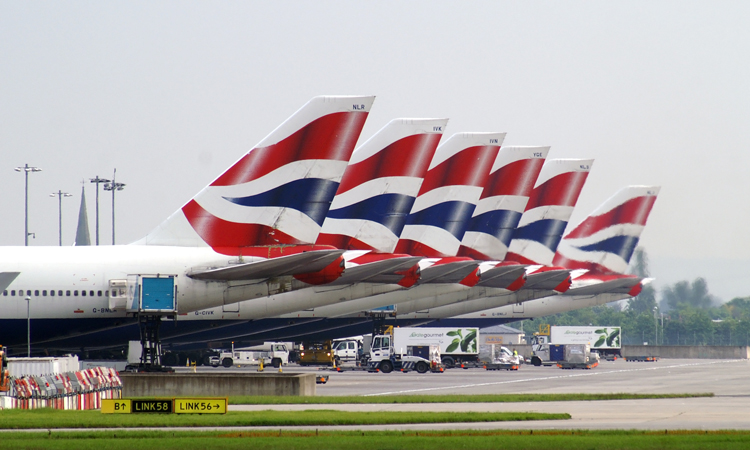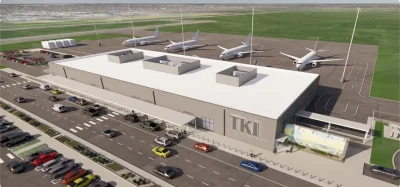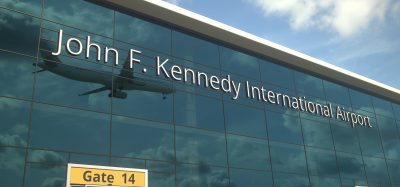UK government confirms plan to restart international travel
Posted: 10 May 2021 | International Airport Review | No comments yet
From 17 May 2021, the UK government will implement a traffic light system, developed by the Global Travel Taskforce, to begin the restart of international travel.


The UK’s Transport Secretary, Grant Shapps, announced on 7 May 2021 that international travel can begin to safely reopen from 17 May 2021, allowing people to go on foreign holidays to ‘green list’ countries as part of the UK government’s new travel traffic light system.
The ‘Stay in the UK’ regulation implemented by the government during the third nationwide lockdown in England as a result of a severe increase in COVID-19 cases will lift on 17 May 2021, meaning that leisure travel from England will no longer be illegal. However, the Transport Secretary has outlined how strict border control measures will remain in place as international travel gradually resumes. based on the new traffic light system set out by the Global Travel Taskforce.
Green list
People are being guided on where they can safely visit without needing to quarantine on return to England – starting with the additions of Portugal, including the Azores and Madeira; Israel and Jerusalem; and Singapore, among others, to the ‘green list’. Those choosing to travel to these destinations will still need to take a pre-departure test up to 72 hours before their return travel, and a single PCR test on or before day two of arrival into England – this can be booked in the same way as is in place now, through private test providers.
The government’s priority remains to protect public health, which is why the ‘green’ list is currently very small, with only 12 countries and territories. As the epidemiological situation improves worldwide, it is expected that there will be more opportunities for leisure travel, with a greater number of destinations added.
In total, 12 countries and territories have been added to the green list. Some of these include: Portugal, including the Azores and Madeira; Australia; New Zealand; Singapore; Brunei; Iceland; Faroe Islands; Gibraltar; Falkland Islands; and Israel and Jerusalem. However, many ‘green list’ countries will continue to place restrictions on UK travellers, including quarantine measures, so passengers are being encouraged to check all requirements and Foreign, Commonwealth & Development Office (FCDO) travel advice before they book any foreign travel.
Amber and red lists
Given that the COVID-19 virus is still spreading in many parts of the world, people should not be travelling to amber and red list countries for leisure. Ten-day managed hotel quarantine requirements will remain in place for those permitted to return to England from ‘red’ countries, and quarantine at home alongside stringent testing will be required for those returning from ‘amber’ destinations.
As a result, to continue to protect the country against new variants of coronavirus, from 12 May 2021, the Maldives, Nepal and Turkey will be added to the red list.
Countries have been allocated by ministers according to the latest scientific data, so quarantine and testing requirements upon return from those countries are appropriate to the risk of coronavirus and variants of concern that are present.
The lists will be reviewed every three weeks, informed by public health advice, including the Joint Biosecurity Centre’s assessment of the latest data. These regular review points will allow the UK government to balance helping the public to understand COVID-19 requirements when travelling to England while allowing for the constant evaluation of the risk for different countries.
The government will also be publishing a green watchlist in the future, to provide an indication for when a country is identified as a candidate for being deemed as safe to travel to. All measures will be kept under review and further action may be taken to protect public health.
Countries will decide whether they require proof of COVID-19 vaccination for entry, and it is the traveller’s responsibility to check individual requirements. If needed, people in England who have both vaccine doses will be able to demonstrate their COVID-19 vaccination status via the National Health Service (NHS) app from 17 May 2021. Those without access to the app can request a letter from the NHS proving their vaccination status from 17 May 2021.
The UK’s Transport Secretary, Grant Shapps, said: “Today marks the first step in our cautious return to international travel, with measures designed above all else to protect public health and ensure that we don’t throw away the hard-fought gains that we’ve all strived to earn this year. This is a new way of doing things, and people should expect travel to be different this summer – with longer checks at the borders as part of tough measures to prevent new strains of the virus entering the country and putting our fantastic vaccine roll-out at risk.”
When travel does restart, it will be different, most notably when returning to the UK. Reopening international travel, while maintaining 100 per cent of health checks at the border, means longer waits are likely – passengers from any destination will still be required to fill out a passenger locator form (PLF) and show proof of a pre-departure test negative result.
While holidaymakers may notice longer than usual queues, it is vital that the government maintains its stringent border checks – which are among the toughest in the world – to prevent new strains of the virus from entering the country and putting the vaccine roll-out at risk.
The government is constantly trying to improve processes to make them as efficient as possible to minimise wait times, and will be committing to increasing UK Border Force resources to manage increased demand. This includes deploying additional Border Force officers where high volumes of passengers are expected.
Border Force will be checking that arriving passengers have complied with current health measures, and passengers can help to reduce delays by completing all necessary requirements before entering the country. The government continues to urge airlines to carry out all necessary checks or risk facing fines of £2,000 for each passenger that they carry who does not have a valid pre-departure test certificate, and £2,000 for each passenger who does not have a completed PLF.
The government will also continue with plans to integrate health measure checks into the border system and enabling checks to take place at e-gates in major ports during summer 2021. Following the UK exit from the European Union (EU) and the end of the transition period, UK citizens will be subject to additional checks upon entering EU countries. If travelling abroad, passengers will need to take steps to keep safe and prepare in case things change whilst they are away.
Industry responses
Airport Operators Association
As research conducted by the Airport Operators Association (AOA) shows that the 12 green-listed countries accounted for just 5.5 per cent of passengers in July and August 2019, AOA’s Chief Executive, Karen Dee, said: “UK airports are ready to welcome back passengers from 17 May 2021, with high levels of health and hygiene measures in place, and we welcome confirmation that international travel will resume. Given the success of the UK’s vaccine roll-out, it is disappointing that so few countries are on the green list. This is not yet the meaningful, four-nation restart that UK airports and the economy need.”
“Aviation is essential to connect families who have not been able to meet for so long, to provide well-earned holidays and for businesses to reach new and existing customers abroad. To ensure that this can restart effectively, the UK government must play its part by adding countries to the green list, making testing more affordable, through the use of widely available rapid tests, and by simplifying the processes and providing sufficient resource at the border. The unacceptable queues that passengers experience at the border in some airports put passenger welfare and safety and security in UK airports at risk,” she added.
Dee concluded: “Pre-pandemic, around a million UK jobs were supported by UK aviation, so a full recovery must be a priority for the government. Ministers need to use the upcoming reviews to reduce restrictions for fully vaccinated people, just as the EU and the U.S. are planning. This is particularly important for restarting the UK’s inbound tourism sector.”
VINCI Airports
VINCI Airports – which operates Portugal’s airports, as well as London Gatwick Airport (LGW) in England – has welcomed the UK government’s decision to include Portugal on its ‘green list’ of countries. This decision paves the way for English and Portuguese passengers to resume travel with complete peace of mind.
Nicolas Notebaert, CEO of VINCI Concessions and Chairman of VINCI Airports, said: “Reconnecting two major countries on the European continent is very good news. By recovering, the tourist economy will support employment and growth. We are also very happy to give back to passengers the pleasure of travel, the pleasure of discovering other horizons and other cultures.”
London Gatwick Airport
Stewart Wingate, CEO of Gatwick Airport, said: “Confirmation that international travel is to restart is very welcome news after what has undoubtedly been the most difficult period in the airport’s history. We are particularly pleased to hear that Portugal is on the green travel list, and we will have regular flights from Gatwick from 17 May 2021, allowing people to reunite with friends and family or enjoy an early summer break. However, as soon as vaccination and infection rates make it safe to do so, we need more countries regularly added to the green list if the airport and our supply chains are to rebuild and protect as many jobs as possible.”
“We look forward to welcoming back more passengers and can reassure them that we and our airlines are very well prepared to safely welcome back passengers in large numbers and have a significant range of social distancing, hygiene and testing provisions in place right across the airport campus. As the government has warned, while queue time may be longer at the border due to extra health checks, we will do all that we can to help to ensure that these are kept to a minimum, including our ongoing trialling of the use of e-gates. We will also continue to work with Border Force to ensure that they make as much resource available to ensure that passengers do not have a disrupted journey arriving into the UK. We hope that people feel increasingly confident to book flights to see relatives, take a well-deserved holiday or travel on business,” he added.
Bristol Airport
Dave Lees, CEO of Bristol Airport (BRS), responded: “Today’s government announcement confirming the green list countries is another very small step forward to safely resuming international travel from 17 May 2021 onward. The initial list is disappointing, offering a limited number of destinations being placed on the green list. With the worldwide vaccination programme, we expect more countries to be added to the green list in the coming months. This will provide surety and confidence to customers in arranging the long-awaited family visit, a well-deserved holiday or business trip.”
The International Airport Summit is open for registration!
Date: 19 – 20 November 2025
Location: JW Marriott Hotel Berlin
At our flagship event of the year, we will dive into the future of airport operations, with expert-led sessions on passenger experience, innovative smart technologies, baggage handling, airside operations, data, security, and sustainability.
This is where global airport leaders come together to share insights, challenges, and real-world solutions.
Limited complimentary passes are available for eligible professionals – first come, first served!
Related topics
COVID-19, Passenger experience and seamless travel, Passenger volumes, Regulation and Legislation, Safety, Tourism
Related airports
Related organisations
Airport Operators Association (AOA), Foreign Commonwealth & Development Office (FCDO), Joint Biosecurity Centre, UK Border Force, UK Government, VINCI Airports, VINCI Concessions
Related regions
Related people
Dave Lees, Grant Shapps, Karen Dee, Nicolas Notebaert, Stewart Wingate


















